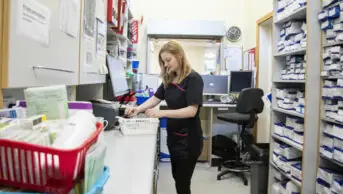
Pharmacists understand how medicines work and are accustomed to working with protocols, patient group directions, and local and national guidelines to optimise treatment. We use this knowledge when we are advising other healthcare workers or when we are recommending treatments for patients over the counter.
I work in primary care part time and often query decisions made by GPs or nurses based on the latest evidence or guidelines. Sometimes, I telephone GPs from the community pharmacy if I have concerns about a prescription, be it a drug dosage or the use of a drug off licence, for example.
So this is easy: I have the evidence on my side and others have to justify their course of action to me. I certainly had that train of thought until recently, when I was called to a meeting to discuss how we, as a primary care team, were dealing with patients with chronic obstructive pulmonary disease (COPD) at a particular practice, one for which I happen to run a spirometry clinic. At that moment, I learnt that my conduct was under scrutiny.
There are parameters that we need to check for patients with chronic conditions on a yearly basis (e.g. blood pressure, the Royal College of Physicians’ ‘three questions’ for the assessment of asthma control, the forced expiratory volume in one second (FEV1) for COPD patients).
I often find that elderly patients who have COPD cannot manage the full spirometry test because they become breathless during it so, instead, I take minimal readings to check on how they are doing and base a lot of my decisions on the overall clinical picture. However, there is a well documented set of instructions on how to conduct spirometry tests and now I found myself having to justify my conduct because it appeared to my colleagues that I was not strictly adhering to the instructions.
Of course, what I should have been doing was to document in the patient’s records why I was not following the normal procedures so that others would understand my thought processes when dealing with particular cases.
If we expect to be treated as part of the healthcare team and to be taken seriously we also have to shoulder the responsibility for our actions and be able to justify them appropriately to others within that team. I have given this aspect of my role some thought over the years but perhaps not seriously enough. The general discussion about patients certainly focused my thoughts more clearly. In future, I will make sure my notes are clear and concise, and cover my reasoning so that the next clinician has a better picture of how I reached my clinical decisions.
This incident has also reinforced my belief that constructive criticism can help improve our practice and how we work.
Valerie Sillito MRPharmS is a community pharmacist in Aberdeen.


